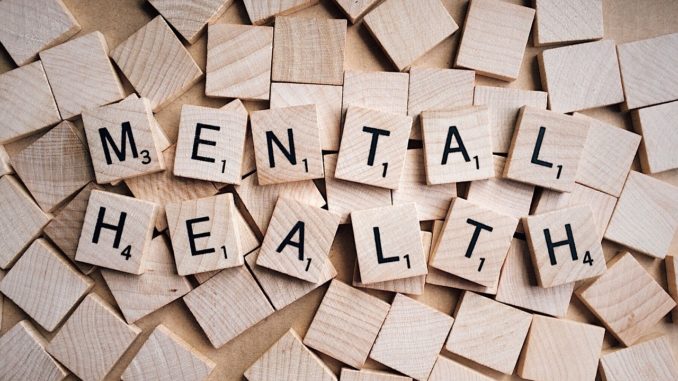
Hosted by the Mental Health Foundation, Mental Health Awareness Week 2019 takes place from Monday 13 to Sunday 19 May. Kristen Lee gives you nine essential steps to protect your mental health
CREDIT: This is an edited version of an article which appeared on the Psychology Today website.
Few of us would argue that mental health should be low on our priority list. In theory, we know it matters…but then reality takes over. Deadlines dominate. We’re too tired. The kids get sick. We get lost in the vortex of our screens.
Even in an era being called the ‘age of anxiety’ and a ‘mental health crisis’, many of us struggle to place mental health on our never-ending lists – never mind keeping it at the top! Then the wake-up calls come. The American Psychological Association reports that we often do not recognise our vulnerabilities to stress and mental health issues until we start to show physical health symptoms. This is in line with the World Health Organisation’s grim report that, by 2030, stress-related illness will surpass communicable diseases.
While we cannot necessarily control the pressures of modern demands altogether – or skirt the inevitable sufferings of life – there are a wide range of activities, backed by science, that we can intentionally weave as ways to protect and elevate our mental health. Here are nine of them.
1. Try therapy
Having a trusted, licensed therapist with expertise in evidence-based modalities, such as cognitive behavioural treatment, is worth its weight in gold.
2. Find community
Isolation can quickly erode mental health. Loneliness is being called ‘the new smoking’ – the health risk of our modern life, where we are both -more connected, and disconnected, than ever before. Relationships provide critical protection against loneliness and foster a sense of belonging that we are wired for. Finding people you can safely and openly share with can help curb self-doubt and provide needed support to navigate the joys and complexities of life.
3. Set boundaries
You can’t say yes to everything and still have the time to make mental health a priority. Decide what’s most important then make the decision to delegate, renegotiate or change your responsibilities. Mental health can quickly erode in the face of too many ‘Yeses’.
4. Engage in mindful living
Mindfulness activities – such as meditation, deep breathing and yoga – have all been linked to elevated brain chemistry and lower levels of cortisol. Research shows that, when we work to stay in the present moment and avoid the mindless trappings of overwork, ‘infobesity’ (technology and news overload), being stuck ruminating over the past or locked in anticipatory anxiety over the future, we are more likely to thrive.
5. Break with perfectionism
Research shows that perfectionism can quickly spiral into strivings which become unhealthy. While pursuing rigorous goals can be healthy, and lead to positive outcomes, expecting perfection and sustaining an inhumane schedule, in the long haul, can leave us at a greater risk of mental health distress.
6. Take daily break rituals
Carve out small chunks of time where you are focused on doing something that renews your mind, body and soul. It can be singing in the car, brisk walks, deep breathing – anything that provides you respite and momentum along the way.
7. Practice self-care
Prevention is less costly than repair. Research shows that taking the time to uphold lifestyle medicine principles – such as proper sleep, nutrition and exercise – can provide the kind of lift that helps us regenerate.
8. Find your fun and funny
Humour is cited as a significant protective factor that contributes towards resilience. When we take life too seriously we can become cynical, jaded and hypercritical. Taking time to be playful and silly can help break tensions that can have a negative cumulative effect on our wellbeing.
9. Avoid consumerism
The promise of retail therapy, being ‘cool’ or having status can lure us into spending money we have on stuff we don’t need. Research shows that when we move away from the ‘goods life’ to the ‘good life’ — one that focuses on spending our time and money on lasting things, like relationships and legacy – we will be more inclined to flourish and thrive.
Don’t forget to follow us on Twitter, like us on Facebook, or connect with us on LinkedIn!

Be the first to comment